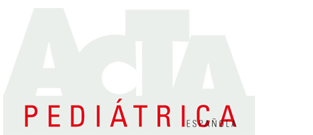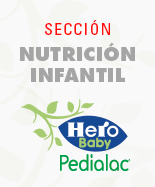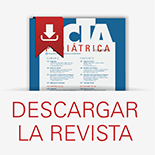Volumen 70 - Número 7 - Julio 2012
Publicado en
Notas clínicas
Cefalea y déficit neurológico: piensa en HaNDL
Headache and neurological deficit: think of HaNDL
C. Pardo Domínguez, R. Porcel Chacón, P. Ortiz PérezÁrea de Pediatría. Hospital Costa del Sol. Marbella (Málaga)















